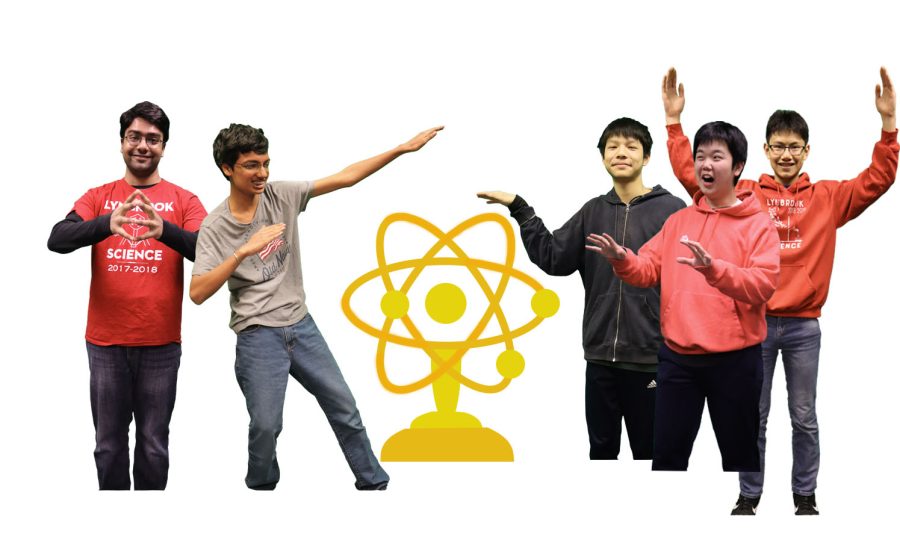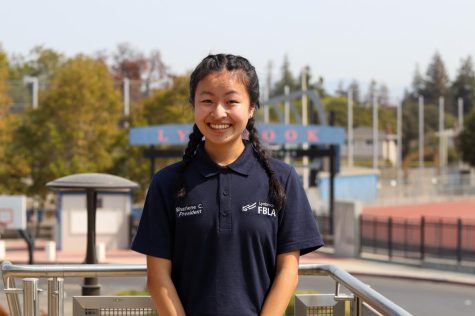Science Bowl Team bonds over challenging competitions
Photos by Claire Chiu, graphic illustration by Sloka Suresh
Lynbrook Science Bowl team members and the Science Bowl logo
February 26, 2020
Lynbrook’s Science Bowl Team competed at a regional competition on Feb. 8; the team made it past the first round, but did not pass the double-elimination rounds, failing to qualify for the National Science Bowl competition.
“I don’t think we reached our full potential during this competition, as Lynbrook usually finishes around first or second, and this year we finished around fifth or sixth,” said Team A member William Huang. “I think we could have done better, but we choked on some parts.”
Science Bowl is a Jeopardy-style competition in which participants press a buzzer to answer questions that each have a designated number of points. The regional competition is hosted annually by the Department of Energy’s Stanford Linear Accelerator Center (SLAC) National Accelerator Laboratory and covers a wide range of subjects within science, including physics, chemistry and biology. As such, each member of the team specializes in a topic along with general knowledge of all the subjects. During competitions, any team member can buzz in, but usually each member knows who is more likely to answer the question and leaves it to that person.
“For me, Science Bowl is a way to show how much I love science,” said Team B member Flora Huang. “I also like how the competitions are actually just games.”
Team A member Jonathan Huang echoes the sentiment on how Science Bowl is different than most other science competitions.
“I think that unlike other science competitions which are large written tests, Science Bowl feels more entertaining since it’s a live competition against another team; you can feel the joy of winning but also the pain of losing,” Jonathan Huang said. “The structure of Science Bowl is also very much like a sport.”
In 2016, Lynbrook placed second at the National Science Bowl competition hosted in Washington, D.C. More recently, in 2019, Lynbrook won regionals after two years of staying in second, breaking The Harker School’s winning streak.
In order to join one of Lynbrook’s two teams, participants must pass three levels of testing — a general test, specific testing for the subject in which they hope to specialize and a buzzer round simulating a real competition. Once the teams are chosen, the team members study by themselves using textbooks and online resources and meet once a week after school at captain Milan Ganai’s house or science teacher Lester Leung’s room to run practice rounds written by schools or sample questions from the Department of Energy.
On Dec. 7, 2019, Lynbrook hosted the first Lynbrook Science Invitational, coordinating with SLAC. Since Lynbrook hosted this event, its Team A did not compete. This event encouraged schools from Santa Clara County that usually do not participate to come and promoted Science Bowl, bringing out around 20 schools. Through Science Bowl, the members have learned about more than just science.
“Science Bowl opened up my perspective since I realized that there are so many people out there that excel at so many things,” William Huang said. “I realized I should not be complacent about my own achievements.”
As next year’s Team A Captain, Jonathan Huang will be implementing some new reforms that include more rigorous practice schedules and a modified tryout system to improve the teams next year.
“Regardless of their results, I hope that my teammates will continue the momentum that we have built and enjoy learning more science.” Ganai said.




























































